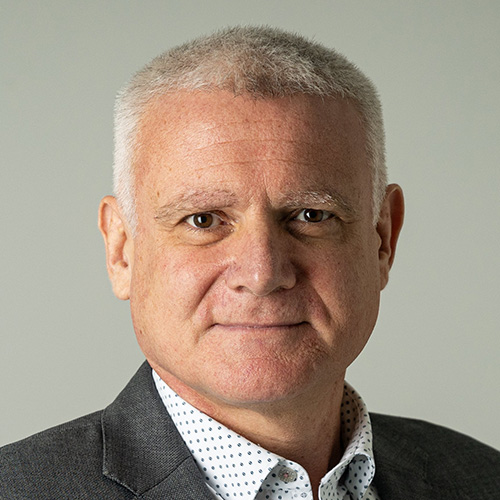A close prime ministerial eye, drawing on his own business experience, is needed to ensure they are credible.
The PM chose the dates for the conference, March 13 and 14, to suit key American investors. It speaks to Luxon’s enormous self-confidence in his persuasive abilities that he has bet Muslim investors he has met in Malaysia and the United Arab Emirates will travel to New Zealand almost exactly in the middle of Ramadan.
A first measure of the summit’s success will be attracting interest from the world’s largest sovereign wealth and asset-management funds. New Zealand has had a good relationship with the biggest, BlackRock, with its $18.4 trillion under management.
After Ardern met BlackRock’s Larry Fink in New York in 2022, her successor Chris Hipkins could announce a $2 billion BlackRock investment in renewable energy shortly before the election, although it isn’t clear what, if anything, it will deliver.
Luxon also needs other major private-sector funds like Vanguard, Morgan Stanley, JPMorgan Chase, Goldman Sachs, UBS and Deutsche Bank to attend, each managing over $2t of assets.
Among sovereign wealth funds, New Zealand has tried unsuccessfully to attract the interest of Norway’s Government Pension Fund, originally established with revenues from its oil industry and now managing over $3t of assets. Luxon’s recent visit to the Middle East has hopefully ensured other trillion-dollar-plus oil-based funds from the United Arab Emirates, Kuwait and Saudi Arabia will show up.
Closer to home, Singapore’s Temasek and Australia’s Future Fund will surely be in the room, along with China’s major $2t-plus funds.
Given Luxon’s links as a former chief executive and president of Unilever Canada, that country’s federal pension fund and famous Ontario Teachers’ Pension Plan and CDPQ funds will be high on his list.
It’s also important that smaller funds and individuals with existing personal or commercial relationships with New Zealand are included. Most New Zealand investments are much too small for the big funds to have the management resources to bother with.
But, famously, the likes of the late Julian Robertson poured hundreds of millions into New Zealand, obviously seeking a decent return but also out of love for the country. In his will, Robertson donated around a quarter-billion dollars of masterpieces to Auckland Art Gallery.
Individuals like Robertson can do what they like with their wealth, answering only to their families. Those investing funds on behalf of others have a duty not to be influenced by sentiment. Their assessments of the business environment, the long-term economic outlook and – most of all – the expected rate of return are paramount.
Even conservative funds expect around a 7% return to be interested, and others much more. Our own Superannuation Fund, one of the best performing sovereign wealth funds in recent years, would want 10%. Given its purpose, it would be immoral for even it to invest in New Zealand projects if it expected to lose money compared with what it could earn elsewhere. The same is true for everyone else managing other people’s money who Luxon invites to his summit.
Rah-rah speeches, corporate videos or other generic marketing material must be and are ignored.
The Government’s overseas investment reforms need to be agreed upon among the coalition partners and passed by Parliament in the next five weeks or the summit is probably best cancelled.
Likewise, Finance Minister Nicola Willis has finally been given the prime-ministerial nod to talk about company-tax cuts, but the Budget on May 22 is far too late for any cuts to be confirmed, along with necessary compensating tax increases to avoid worsening the fiscal deficit.
Willis must deliver on her promise to be bold. Little tax tweaks will make no difference. At 28%, our company rate is well above all the countries on which Luxon says his year of growth is modelled. Ireland’s is 12.5% and Singapore’s 17%. Even the likes of social-democratic Sweden and Denmark tax companies at only 21% and 22% respectively.
If Luxon and Willis believe lowering the company tax rate is necessary to attract investment – and even some right-leaning economists dispute that – cutting it by two or three percentage points would achieve nothing.
Similarly, as The Economist highlighted to its global readers on its cover this week, the world is going through a period of rapid and radical deregulation, including in Washington, Buenos Aires, Delhi, London and even Brussels.
Every day New Zealand procrastinates we fall even further behind.
Ideally, Infrastructure Minister Chris Bishop will present his bill to fully reform the Resource Management Act before the summit. At the least, he could rush through legislation so that any projects funded at the summit will receive the same fast-track treatment as the 149 identified in his stop-gap legislation last year.
More importantly, Regulation Minister David Seymour needs a rev-up from his boss. His Ministry for Regulation already smells like just another Wellington talk shop. So far, it is reviewing just three sectors, the early childhood education market, agricultural and horticultural products like fertilisers and pesticides, and hairdressing.
Since its inception over 30 years ago, Act has argued New Zealand is over-regulated. It surely has a list of regulations to deliver to Luxon that could be repealed in the five weeks before the summit. If not, what hope is there that Seymour’s Wellington bureaucrats will find any thereafter?
The Prime Minister raised expectations with his State of the Nation speech a fortnight ago. He has managed Waitangi Day well, by staying away from this year’s circus up north and giving an inspiring speech at Ngāi Tahu’s historic Ōnuku Marae.
If he can’t or won’t deliver substance behind both before the summit, his year of economic growth risks going the way of Ardern’s 2019 year of delivery.
